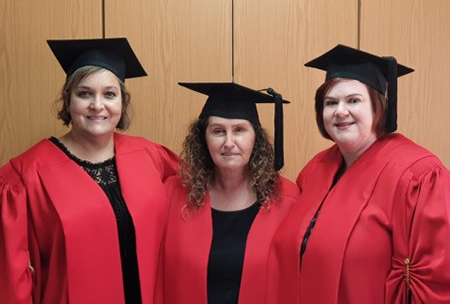Academics from the North-West University's (NWU's) Faculty of Health Sciences have developed a research-based intervention programme that enables victims of CSA to transition from being survivors to thrivers.
The Survivor to Thriver (S2T) programme is the brainchild of Prof Hayley Walker-Williams, deputy director of the School of Psychosocial Health, and Prof Ansie Fouché, full professor of the Social Work subject group. This programme facilitates resilience processes and posttraumatic growth enabling outcomes in women who have survived CSA.
According to Prof Walker-Williams, longitudinal research was conducted from 2013 to 2017 to test the benefits of this programme. During this period the study was funded by the National Research Foundation (NRF). Women aged between 18 and 57 from the Vanderbiljpark region and its surrounding areas participated in the study.
Prof Walker-Williams says the study found that women who completed the S2T group intervention programme, became “experts” of their own trauma. After re-authoring their trauma narratives in a safe group context, these women could reflect on their own individual strengths and capacities borne from their struggle to cope with their childhood trauma. They thus began to focus on what was strong instead of what was wrong.
What about male survivors?
Prof Walker-Williams and Prof Fouché realised that the S2T group intervention programme needed to be offered to male survivors too as the results obtained from the female studies could not be generalised with regard to male survivors of CSA.
In 2017, the pair collaborated with Prof Tess Patterson, a senior lecturer at the University of Otago, Dunedin, New Zealand, and associate dean for student afairs of the Otago Medical School, to roll out the S2T group intervention programme in New Zealand and specifically for men.
The NWU has since signed a memorandum of Understanding (MOU) with the University of Otago in New Zealand. The aim of the MOU is to determine the benefit of the S2T programme for males who have survived CSA.
Funding has been obtained from the University of Otago to pilot the S2T intervention with male survivors in New Zealand for 2020-2021.

Prof Ansie Fouché, Prof Tess Patterson and Prof Hayley Walker-Williams.
